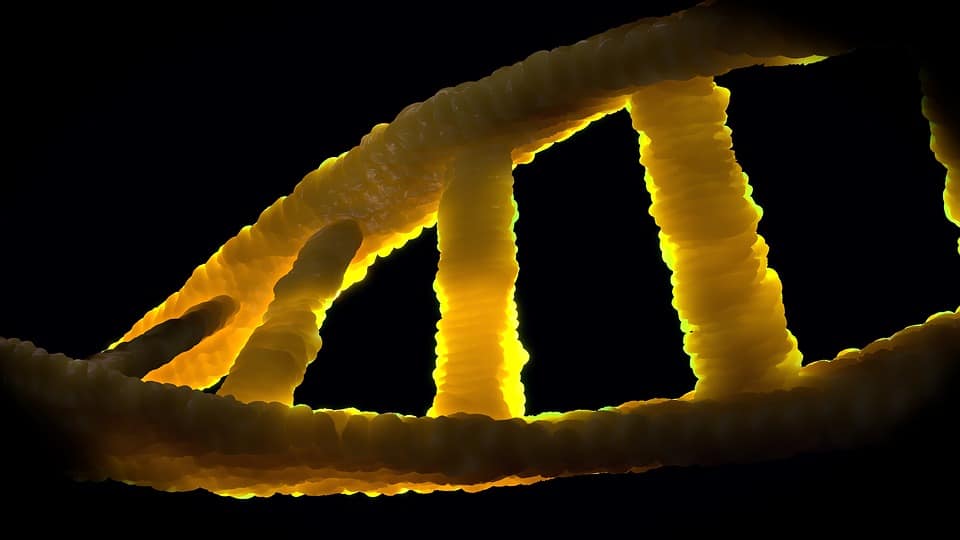
Furore over DNA testing company’s licensing of consumers’ data
pharmafile | May 26, 2017 | News story | Medical Communications | 23andME, Ancestry, DNA, DNA testing, genetic information
A company that assesses DNA is dealing with the repercussions of public outcry after a data protection lawyer highlighted a clause in its terms and conditions allowing sweeping use of consumers’ genetic information. The company, Ancestry.com, hastily rebutted the claims laid out in the lawyer’s post but the story has already unleashed a can of worms for the company, as well as for other DNA analysis companies.
The DNA testing market is steadily growing as the technology required to process the data is becoming cheaper, along the savings to be passed along to the consumer. The surge in popularity of a service that would have been unthinkable only a few decades ago has meant that AncestryDNA is now able to boast a four million strong user database.
The industry is tentatively predicted to grow to a worth of £261 million by 2022; at immediate glance that seems like a relatively small sum given the amount certain large tech companies splash out on startups on a semi-regular basis, there’s the rub.
The true worth of the market does not seem to depend on the price consumers pay for the test to be completed itself but on what the consumer is providing, their genetic information. This is why the blog post Joel Winston, consumer protection litigator, has caused such a stir. On the post, he concludes: “Customers must understand that turning over their DNA means a loss of complete ownership and control. Ancestry.com customers should also know they’re giving up the genetic privacy of themselves and their relatives.”
What Winston is claiming is based on his interpretation of the terms and conditions that read: “By submitting DNA to AncestryDNA, you grant AncestryDNA and the Ancestry Group Companies a royalty-free, worldwide, sublicensable, transferable license to host, transfer, process, analyse, distribute, and communicate your Genetic Information for the purposes of providing you products and services, conducting Ancestry’s research and product development, enhancing Ancestry’s user experience, and making and offering personalized products and services.”
What this allows Ancestry.com is the ability to commercialise people’s DNA, subject to their acceptance of the terms of conditions they agree to before receiving their DNA testing. The business model for DNA testing companies is then two-fold: it allows the companies to sell the tests and it also allows them to sell any services developed through the DNA onto other companies.
23andMe, another of the big players in the field, has already signed a $60 million deal with Genentech to generate whole genome sequencing data for people Parkinson’s. It has also signed a deal that allows Pfizer access to its genetic database.
This is why the figure of £261 million market in the tests themselves looks so unimpressive, the real money is to be made with the DNA data itself and this is why Winston’s blog has spooked Ancestry.
The company cannot afford for customers to become worried about the use of their data, bad press in this area and subsequent consumer fear of signing away licensing of their DNA could stem the information flow to Ancestry’s database.
Eric Heath, Ancestry’s Chief Privacy Officer, released a blog post to counter Winston’s claims four days after the original post, as the storm began brewing. It reveals that Ancestry’s terms and conditions had been updated as a result of Winstone’s post – somewhat undermining Heath’s claims that “the article is inflammatory and inaccurate”.
Heath concludes his defence by reasoning that: “We require you to grant us a license to your data when you take our test. The reason for this is simple: We need that license in order to move your data through our systems, render it around the globe, and to provide you with the results of our analysis work”.
Due to the fact that Ancestry outsources the data analysis work, the claim is true. However, it carefully avoids the other side of the DNA testing business that requires such licensing – to commercialise the database that emerges as a result of consumers signing the terms of conditions.
If nothing else, the case should cause enough concern for consumers to be slightly more wary when agreeing to terms and conditions. However, as many have noted, who has the time or patience to read through reams of terms and conditions? The answer is few and so it is incumbent on individuals, like Winstone, to comb through these on consumers behalf to find anything that could be found to be alarming.
Heath does conclude that “There are a lot of legitimate questions to be asked and discussions to be had about consumer genomics. It’s still a new industry after all.” This perhaps is the most important point in this case – that questions must always be asked of how companies are using consumers’ data, especially when it is not always immediately clear. The answer that customers of Ancestry now know is that their genetic information is subject to licensing by the company and their data can be used y the company beyond simply discovering their family history.
Ben Hargreaves
Related Content

Beckman Coulter Life Sciences and Watchmaker Genomics enter collaboration
Beckman Coulter Life Sciences and Watchmaker Genomics have announced that they have entered into a …

Touchlight completes expansion of one of world’s largest DNA manufacturing facilities in London
Touchlight, a company that focuses on pioneering enzymatic DNA production, has announced that it has …

23andMe to offer genetic reports on diabetes
Personal genomics company, 23andMe will offer customers information on the likelihood that they are genetically …






